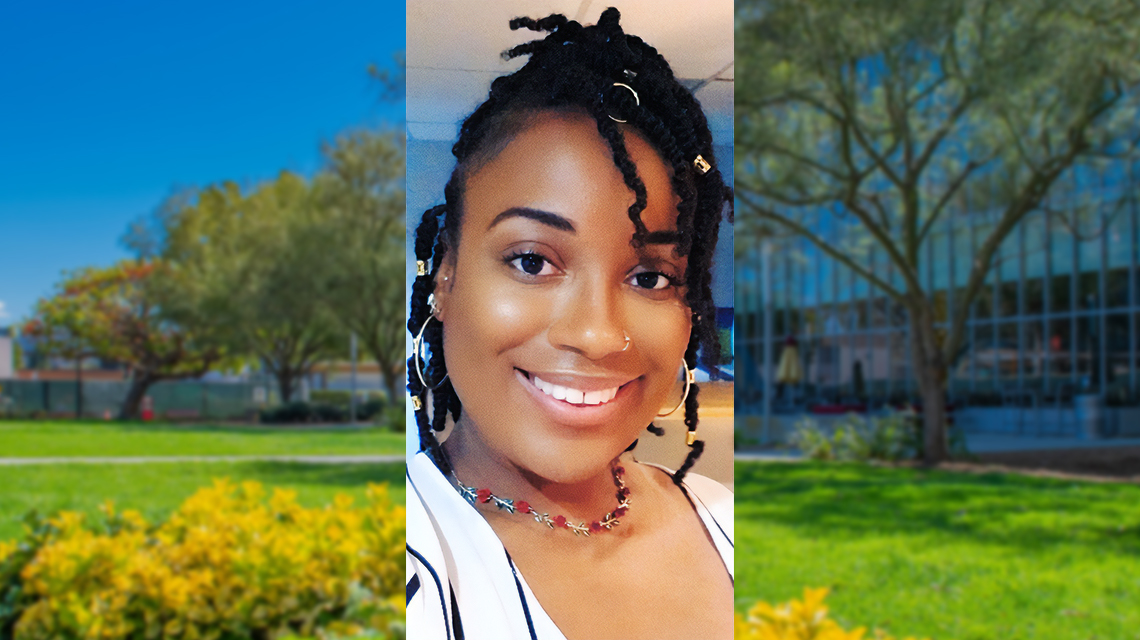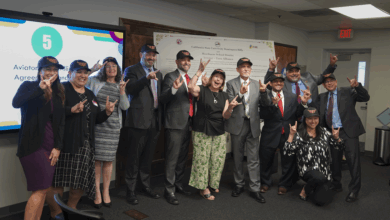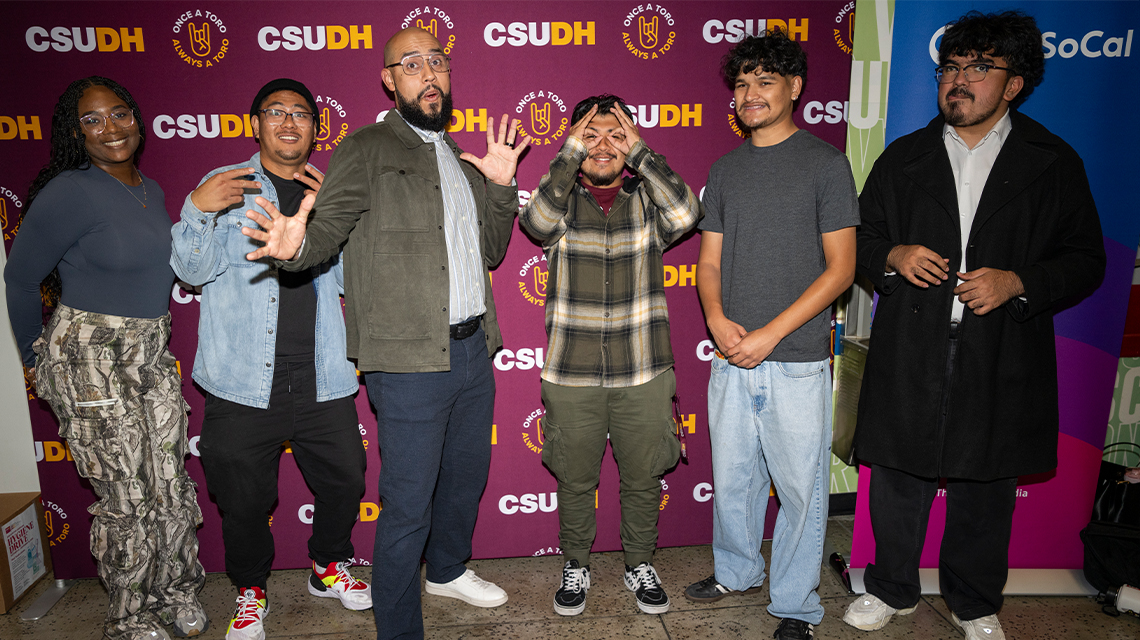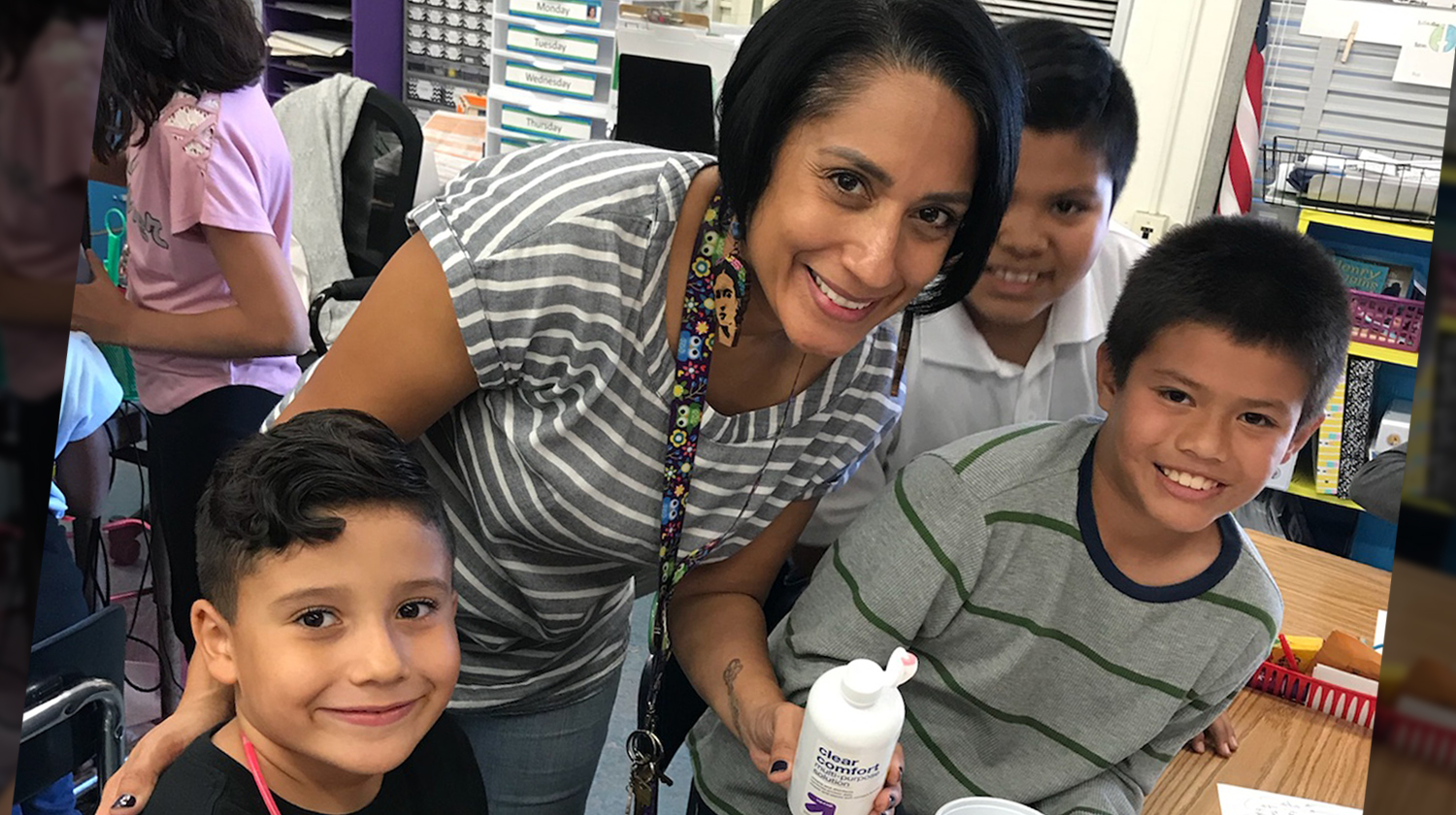
During her first meeting as a member of the McNair Scholars Program, CSUDH alumna Kristi Sprowl (BS, ’16) was asked how she would impact the world if given the chance. Her answer: “I would like to create opportunities for people of color to live in equitable spaces, and also be a part of what health equity looks like for them.”
Today, after years of hard work and study, Sprowl is living her dream as the community impact director for the American Heart Association in Atlanta, Ga., while simultaneously working towards a doctorate of public health at the University of Georgia. She attends night school with other working executives in the field–the people who will be “creating and strategically planning out health care decisions that affect the American community,” she says.
From Nursing to Public Health
Growing up in Inglewood, Calif., Sprowl was always drawn to a career in health care, but wasn’t quite sure what direction she wanted to pursue. She began her educational journey intent on becoming a registered nurse.
“I was told by a lot of people that nursing is a good field–it’s lucrative and long-lasting; you’ll always have a job,” she recalls. “I decided to go for it.” While completing her associate’s degree in behavioral science at El Camino College, Sprowl began working rotations at UCLA Medical Center, and came to the conclusion that a career in nursing wasn’t a good fit for her.
“I saw that the nursing field had some elements that I didn’t really feel deeply connected to,” Sprowl says. She spoke with a few mentors, who suggested changing paths to a career in public health. She had never given the field much thought, but looked into it and became intrigued. Sprowl was accepted into CSUDH’s Health Science and Community Health program, as well as the university’s McNair Scholars Program, and she began to excel in the new discipline.
She believes the environment at CSUDH helped her turn the corner on her academic career. “CSUDH is a teaching university,” she says. “It meant a lot to me that their whole purpose was to instill knowledge, but it also involved teachers that looked like me and came from backgrounds such as myself. That always helps when you’re young and trying to figure out your career path.”
Sprowl credits a handful of mentors at CSUDH for helping her find her path: Enrique Ortega, associate professor of health sciences; Archana Sharma, assistant professor of health sciences; and Michelle Martinez, director of the McNair Scholars Program.
“Those three definitely made Dominguez a little bit brighter. Each of them has a really unique way of understanding students’ needs and who we are as people, too,” says Sprowl. “They treated me as a human being, and then a student. I think that was really special.”
Her work at CSUDH also helped Sprowl see the importance of listening to those in the community you are trying to help, she says. “I think people can create health equity plans and then kind of push it on communities with the attitude, ‘This is what we found in the research. Here, community members, do it!’ But when do we ask the community if this is even feasible for them?”
The Heart of Public Health
After graduating from CSUDH, Sprowl earned a master’s degree in public health from the University of Arizona, then decided that she wanted to work in the heart of the U.S. public health industry–Atlanta.
“What’s unique about Atlanta is that all the researchers and physicians here can quickly communicate with one another, gather the best data, and circulate it right back to the Centers for Disease Control (CDC),” says Sprowl. “That way, the CDC can continuously give us the best recommendations, according to the very latest science.”
She moved to Atlanta in 2019, getting a job as a clinical researcher at Emory University. Within a year, Sprowl moved on to become a senior public health educator with the Fulton County Board of Health. She also worked with a team of physicians and educators to create a new sex education curriculum for the Atlanta Public Health Schools.
In her current role as community impact director for the American Heart Association, “I think I finally landed in a spot where I feel like I’m contributing a lot of the knowledge, the resources, and the tactical skills I’ve learned in public health,” she says.
Sprowl is also a member of a COVID-19 task force located in Albany, Georgia, part of a health equity fellowship program at the University of Georgia, and plans to participate in a summer fellowship with urban leaders later this year.
Open-Mindedness is Key
For Sprowl, “The more open your mind is, the more you will be able to receive the best information.”
While students often enter college with a set plan that they hesitate to stray from, keeping their options open and truly finding their passion is essential. “I had a plan, but I also was open to detours and experiences that led me in different directions,” she says. “And it was fun along the way! I think if I would have just stayed on the nursing path, I probably would have been miserable right now.”
She advises current students to allow space for what they’re interested in, but also to test what they’re capable of. “I would say the more open your mind is, the more you learn about yourself and how you can truly create the career you want to have,” Sprowl says.
“I think we need to remember that being a student is a lifelong journey,” she emphasizes. “Whether you’re a college student or an experienced professional in your field, you never stop learning.”









